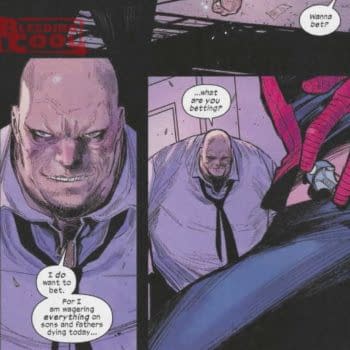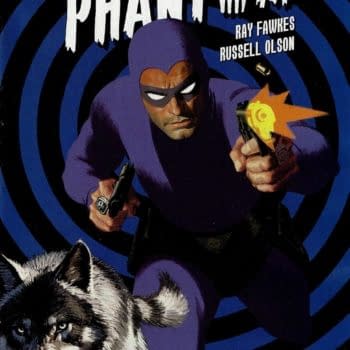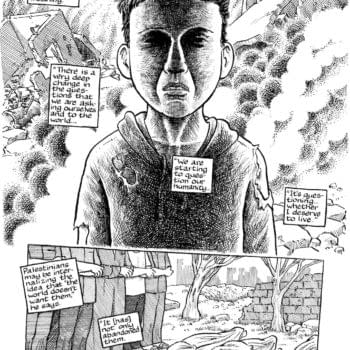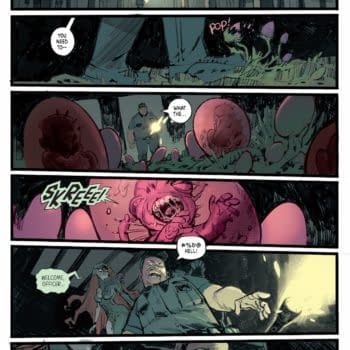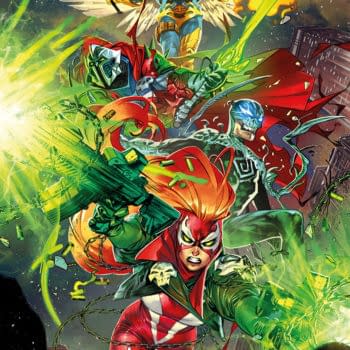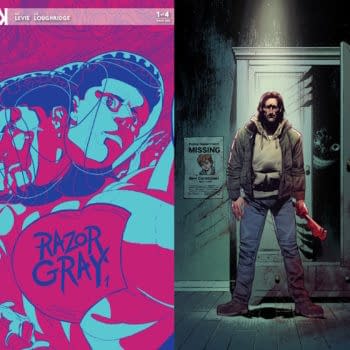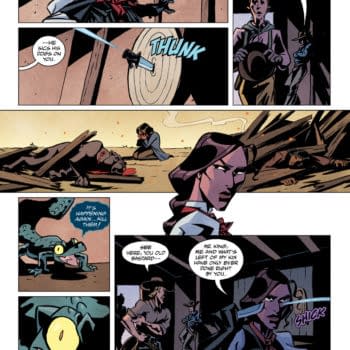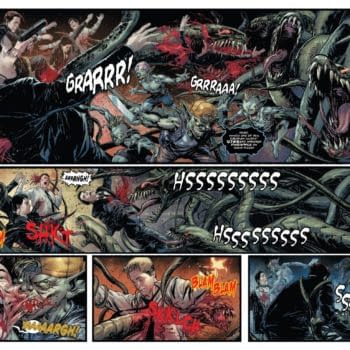Posted in: Comics | Tagged: ales kot, Comics, entertainment, Kate Leth, kieron gillen, Noelle Stevenson, rick remender, scott snyder, tbf15, Thought, thought bubble
Worldbuilding At Thought Bubble With Kate Leth, Noelle Stevenson, Rick Remender, Scott Snyder, Ales Kot and Kieron Gillen #TBF15
![20151114_155002[1]](https://mlpnk72yciwc.i.optimole.com/cqhiHLc.IIZS~2ef73/w:600/h:450/q:75/https://bleedingcool.com/wp-content/uploads/2015/11/20151114_1550021.jpg)
With Kate Leth, Noelle Stevenson, Rick Remender, "My name is Scott Snyder. I invented Gotham City", Ales Kot and Kieron Gillen. And how world building also means a lot more that making maps for Lord Of The Rings ripoffs. But that too.
Kate Leth started by telling us "I did not intend to become a writer" as she was asked by Boom! to write an Adventure Time Graphic Novel after only having written a six page strip before, and talked about growing and creating stories and places which were then totally contradicted by the next season TV show. She likes taking other people's sandboxes and telling stories in them, that's how she started, writing fan fiction as a teenager, "you then have to get much, much better at it."
Rick Remender, talked about world building as his way of preparing for the future, and cited scientiic studies that posit that imagination is an evolved tool for that purpose. He talked about writing for Marvel about not being able to change the world the stories are set in.
Noelle Stevenson says that her first written and drawn work in comics was exactly what she wanted to do and she gets jobs that fit within that voice.
Scott Snyder talked about how creating a world shows the audience that it is your place, different from the real world, and an extension of your own hopes and fears made text.
Gillen talked about a previous answer he'd heard Scott give, about how with licensed books the audience already cares and the creator has to find a way to care, but for creator owned books its the opposite way round.
Ales Kot talked about finding an emotion that's your own and find a way to make connect with everyone else in the room. For him, the core interest is finding out how to tell the audience that they are not alone, and how to convince himself that he is not either.
Remender warned about stories that just tell the world, and talks about how that somehow makes into the most professional productions that spent ten minutes setting up the history of a world more than telling a story.
Gilen asked how much creators plan, to support the story they are telling, how much they instinctively know, and how much is on graphs?.
Stevenson talked about writing some stories that just have characters running around without a necessary plot but with her webcomic Nemona, she knew the ending as soon as she came up with her and her story.
Talking about making big changes, Stevenson also talked about changing an ending to a strip from her lead character losing a leg which she would grow back, to losing a head and getting frantic emails asking is she's cut off the head of her lead character.
"Never cut off the head of your lead character", Gillen advised, wickedly and divinely.
Leth talked about one of her favourite things is creating the world a character lives in and will spend hours talking with collaborators about rooms, about streets, what they say about the characters and how she takes notes when she visits people's houses to see what their environment says about them. Gillen countered that when people visit his house and look at their bookshelves that they are not his books, in case people deduce incorrect things about him.
Snyder pointed out of the conceit of Wytches that monsters were scary but were waiting for people to come to the to do horrible things. Snyder knows the worst story he can possibly tell and that will be the last book. But along the way, he goes wherever he wants, as long as he knows the end game. BUt is willing to deviate from it when he gets there.
Kot talks about wanting to go all over the place making different kind of worlds and how he admired Steven Soderbergh moulding his voice to fit his stories.
Gillen wanted to push Remender on his meticulous plotting, and talked about the joylessness of working too much of the story out and then having to spend 18 months writing it. The problem is that an idea that he has for a while can seem dull after a few months and he relies on an editor to keep a more open mind. He still structures things, and hits beats, so as to get rid of fat in comic book storytelling because someone has to draw this. Leth recommends drawing the comics you write, Remender pointed out that when he did that he would get to crowd scenes and replace them with the silhouette of a dog.. He says that Black Science was originally 12 issues long, which he gutted down to six issues. Though he loves the Johnny Ryan comics which go anywhere and everywhere without any structure whatsoever.
Stevenson talked about "save a cat" structure from film and animation, which she sees as becoming too traditional. The term came from Ripley saving the cat in Alien, to be seen as a more likeable character, but Stevenson has tried to reject that to keep a character unlikeable for an audience.
Gillen wants a character to save a cat for later to eat it… and talked about how story structure feels like a music beat and how too many songs sound the same too.
Remender again cited studies that the enjoyment of audiences depends on how much they can predict what's coming, and how killing Frank Castle and resurrected him as Frankenstein didn't go over well. Formulaic things keep getting made because people enjoy them for being comfortable.
Leth talked about how Saga works well, "someone I love is going to die… Kieron you know all about this" but how the comic has changed from the last page getting the audience to the first page doing it…
Kot believes that Brian K Vaughan is writing in a five act structure, in a Shakespearian mode, rather than the Hollywood three act.
Leth talked about how really unlikeable characters such the joy out of stories, naming Joffreys from Game Of Thrones "I hate Joffreys" and how some redeeming features make you mad for liking them more, and make them
Snyder talked about one friend of his who can't write a story if they know how it ends, and how Scott can't if he doesn't. But he emphasised the importance of emotional structure, getting characters – and the audience – mentally from one point to another. Remender jumped on that, talking about how if you don't feel anything, the audience won't. Emotions can take a character off the preprepared rails you've set out for them.
Gillen said that if he doesn't cry when writing a story then it's not a good story. Scott explored how this meant that a story was alive, the structure falls away and you're living through the characters that you've created. Rick says that this can be hard "when some asshole six months ago wrote a plot and he's saying 'stick to the plot'"
Snyder finds going off the rails to a new moment and how that's the happiest moment when writing. And he talks about how he's much happier reading a story that has gone off the plans for emotional reasons, where rails have been shooed away to get to a real emotional moment. He believes that these days they have more freedom in comics to find those places thanks to creator owned comics and how licensed comics have been affected by those.
Kot talked about stories as a mirror, reflecting the creators fears and hopes, and he wants to see creators making more worlds that they want rather than those that they fear. To which Remender gave a rousing "boo".
Kot expanded that the stories that we tell ourselves form the world that could be, citing The Martian as a story about people working together.
Stevenson says that dystopias are the popular thing right now and finds more value in the stuff that sucks… Leth points out that in songs, its the sad songs that get tattooed on people. And how that emotion has greater resonance with people, and even her sadder Adventure Time stories mean more to her. Stevenson argued that they needed hope, though, something to look to the future…
It was a bright point to and the panel – that took a little getting to… a bit like the end of Lord Of The Rings as Stevenson also pointed out…






